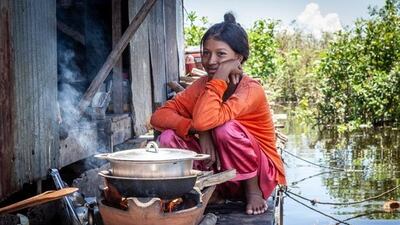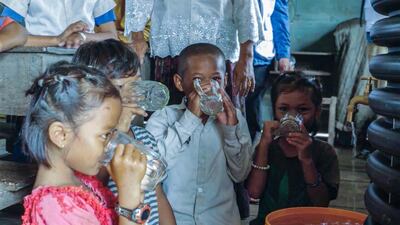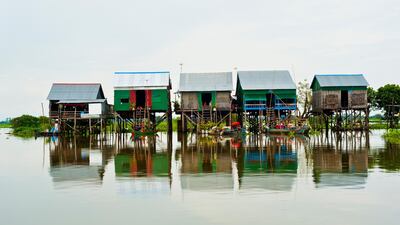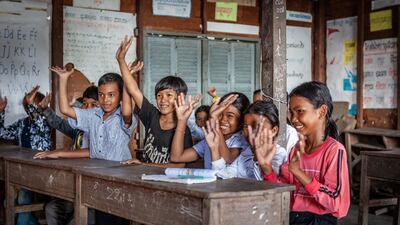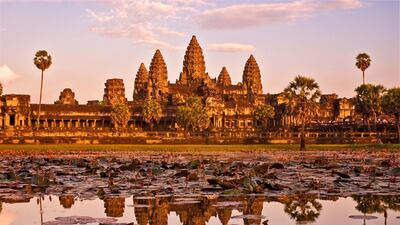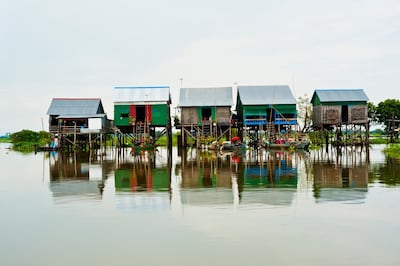More than 4,000 people living in floating villages in Cambodia's Tonle Sap lake once did not have free access to clean drinking water.
They were forced to buy filtered water from meagre earnings made from tourists who took boat trips around the lake.
Their situation became all the more critical when Covid-19 put an end to this income.
But now they have access to clean, purified water thanks to a UAE-backed project.
Five water fountains with specialised filters have been installed across schools and the healthcare clinic on the lake.
It makes surface water drinkable by removing viruses and bacteria that cause diarrhoea, dysentery, cholera and hepatitis. One filter can purify up to 1,000 litres of water an hour.
The technology was developed by the French company Safe Water Cube – a 2019 finalist of the Zayed Sustainability Prize – and it is now providing 4,400 residents with easy access to safe drinking water.
“There are no tourists visiting the floating villages anymore,” said San Sophy, one of the residents benefiting from the initiative.
“With that source of livelihood gone, we have gone through financial difficulties, surviving only on my husband’s earnings from fishing.
“We did not even have enough money to buy 20-litre bottles of filtered water at 5,000 Cambodian riels [$1.25].”
The 23-year-old mother, who is pregnant with her second child, was born in a floating clinic on Tonle Sap.
She said their only option was to boil water from the lake.
“But these practices are not enough to purify water. The water still remained contaminated," she said.
“I am so thankful to have access to this fountain as I was very worried about my unborn child's health from drinking lake water," she said.
“Today, I do not get sick anymore and my stomach cramps have stopped."
Access to clean water is a problem for many Cambodians. According to the country's National Institute of Public Health, only 50 per cent of residents have sufficient water.
Tonle Sap is a huge freshwater lake renowned for its biodiversity close to Siam Reap. The town is popular with tourists as the gateway to the ancient ruins of Angkor Wat. But tourists often visit the lake where villagers live in floating homes and houses on stilts in a way of life sustained through generations.
The Tonle Sap project is part of the sustainability prize's "20by2020" initiative. Twenty projects backed by the UAE over the past decade will be extended to communities across the world by the end of this year.
"This innovative water purification technology will positively impact the health and wellbeing of many people in rural Cambodia," said Dr Sultan Al Jaber, UAE Minister of Industry and Advanced Technology, and director general of the prize.
"Through the 20by2020 initiative, we are leveraging the sustainable solutions of Zayed Sustainability Prize winners and finalists to successfully impact countless lives around the world."
